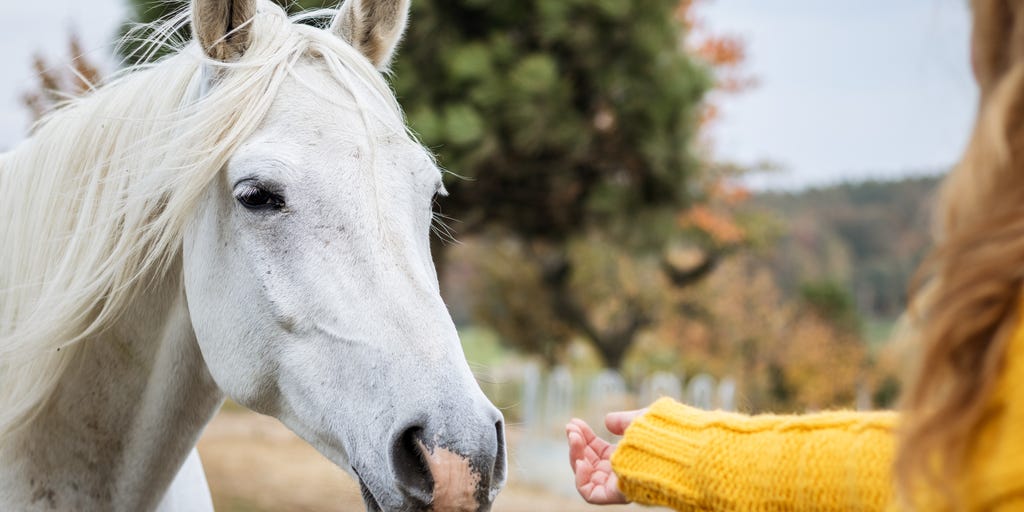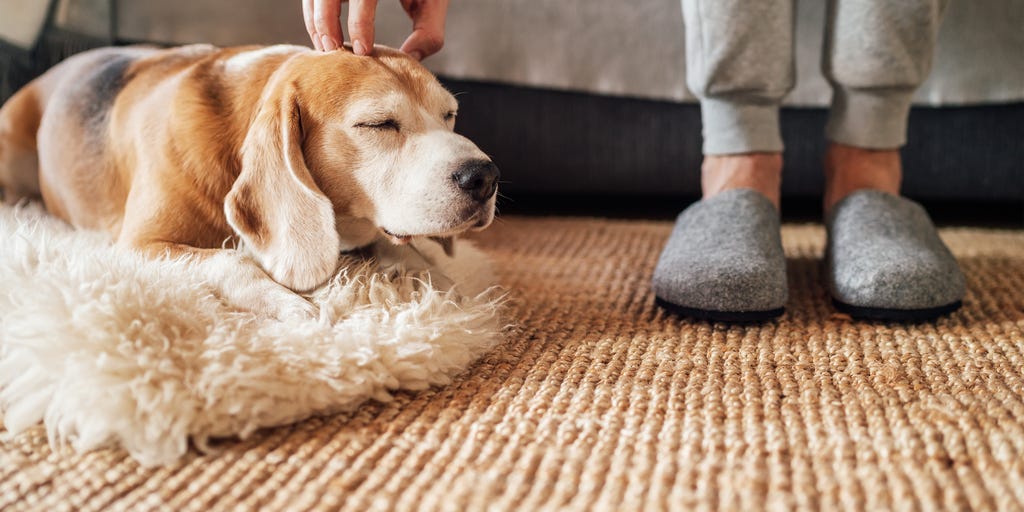For HSPs, animals are our teachers
Dogs, cats, horses and other furry friends can help us soothe our nervous systems and learn the art of living in the here and now
Welcome to my weekly newsletter aimed at building a supportive community for Highly Sensitive People (HSPs).
When I was working with children and teenagers as a clinical psychologist in the National Health Service, I noticed a pattern: many of the most sensitive young people enjoyed a special bond with animals.
There was the teenager suffering from depression who lit up when talking about her cat. Another was in trouble for lashing out in the playground — but treated her guinea pigs with the kindness of a saint. So many would find it hard to discuss their problems, but would willingly share their anger and sadness over factory farms, or species on the brink of extinction. Years later, when Greta Thunberg burst into the news, I recognised her sense of outrage immediately. I came to think of those younger clients as “mini-Gretas” — and they did a lot to open my eyes to the urgency of our planetary crisis.
I’ve since realised that many of these youngsters were Highly Sensitive Children (HSCs). We can learn a lot from their love of animals as we support one another to explore our sensitivity and feel more connected and empowered as adults.
Dr Elaine Aron, the American psychologist who coined the term HSP, is a big believer in the benefits of bonding with animals. With our talent for reading non-verbal cues such as body language and facial expressions, and attuning to emotion, HSPs are natural inter-species communicators:
“HSPs have stronger emotional reactions than others, and also are affected more by others’ moods. This makes us more like other animals and better able to communicate on their channel, which is mainly emotional. We sense what pleases, scares, or angers them, and we notice when they have sensed our emotions. A highly sensitive rider, for example, knows all too well how quickly fear passes back and forth between horse and rider.” — Dr Elaine Aron.
Alane Freund, a friend and colleague of Dr Aron, helps HSPs to learn to regulate their nervous systems and emotions through workshops with horses. HSPs often find it difficult to open up to friends — and even therapists — about their deepest feelings. We’ve had so many experiences of being shut down or labelled for our sensitivity, that it’s natural to retreat into our shells. But we can be certain that a horse will never judge us. By connecting with horses (or other mammals), we activate the same pathways in the “emotional brain” involved in human relationships, but without the risk of triggering shame, anxiety or fear. For those of us recovering from abusive relationships or trauma, cultivating a more conscious connection with animals can help us to learn to trust again. (I am a big fan of Freund’s work and love this talk she gave on understanding high sensitivity).
Freund summarises her work with horses like this:
“We begin our sessions outside the fence with observations, moving into the corral, and getting up close and personal with the horses at each individual’s own pace. Interacting with horses provides the opportunity to gain fresh, honest awareness of our truths. Unlike so many people, horses have no agenda; they don’t care about our power, position, title, degree, or salary. Learning to use your mental focus with clarity and clear boundaries to direct a 1000-pound horse gives clients a shortcut to self-confidence and a sense of personal power.” — Alane Freund
In Britain, my friend Sun Meyer has pioneered safe, evidence-based forms of equine therapy through her IFEEL method, and runs life-changing workshops in West Sussex. Of course, we don’t need to go and spend a weekend in a paddock to connect with animals. Here’s a few thoughts on the benefits of deepening our bond with our four-legged companions, whatever their shape and size:
Keeping loneliness at bay: So many HSPs struggle with a sense that we don’t belong — and withdraw if life becomes too much. No matter what’s going on with us, a pet accepts us for who we are. Snuggling up with a cat, or watching a dog bounding around wagging its tail, can be pure bliss — and help meet our needs for contact and affection. (Walking a dog can also be a great way to connect with other owners).
Reducing stress: Pets can help us regulate our nervous systems, and research suggests that they offer a host of health benefits in terms of lowering stress and blood pressure, which may reduce our risk of heart disease. Scientists at Washington State University (WSU) have shown that, in addition to improving students’ moods, petting dogs and cats can actually get “under the skin” and have stress-relieving physiological benefits:
"Just 10 minutes can have a significant impact. Students in our study that interacted with cats and dogs had a significant reduction in cortisol, a major stress hormone," said Patricia Pendry, an associate professor in WSU’s Department of Human Development.
No need for draining small talk: Socialising can be exhausting for HSPs. No matter whether we are introverts or extraverts, we can feel overstimulated by social situations, and we need a lot of downtime and rest to recover. Needless to say, animals don’t do small talk. And they don’t trigger our impulses to people please, or manage another person’s feelings — common energy drains for HSPs.
Being present: In The Power of Now, spiritual teacher Eckhart Tolle writes that he has lived with many Zen masters — all of them cats. Animals don’t project into the future or ruminate over the past: They show us how to live in the moment and step off the treadmill of endless overthinking.
Using our voice: HSPs can’t stand injustice in any form and are often called into advocacy or activism. Given the grave threats posed to all life on the planet by climate change and the collapse of species, we can join social movements working towards solutions — and put our sensitivity into service on behalf of a higher cause.
I’m left feeling rather bereft that I don’t have a pet! One day, maybe…
In the meantime, I’d love to hear about your experiences of connecting with animals, the support they can provide to us as HSPs, and how we can reciprocate by enhancing their welfare in return.
See you next week!







Yes, I totally agree with this!
We've just welcomed our second dog into the family as of last week - Houdini :)
My girlfriend and I often talk about how simply present they are - they don't overthink or analyse anything... they just 'be'. And that definitely rubs off - I enjoy sitting with them and just enjoying their company... I also meditate with them sometimes, if they're in a calm mood (though getting the yoga mat out is always mayhem - but good fun!)
They bring lots of joy and happiness into the home - it's also nice to have the company as I work remotely. I feel privileged to have them.
(I won't mention cold walks in the rain or the muddy floors...) :P